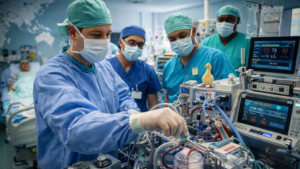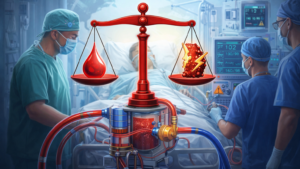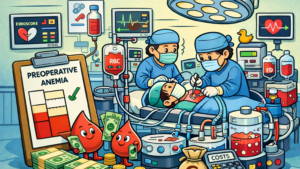The term “perfusion” originates from the French verb ‘perfuser,’ meaning to ‘pour over or through.’ Perfusionists are highly trained healthcare professionals who specialize in operating cardiopulmonary bypass machines and other medical devices that mimic the functions of the heart and lungs during surgical procedures. These specialists play a critical role during open-heart surgeries, managing the artificial blood pumps that maintain circulation by propelling blood through the patient’s body tissues. This process temporarily replaces the heart’s function, allowing cardiac surgeons to perform the necessary operations.
Extracorporeal circulation (ECC), a vital concept in perfusion, involves the continuous removal and return of a patient’s blood through plastic tubing. This process allows healthcare professionals to perform artificial organ functions outside the body. ECC is essential in treating patients whose organs are failing. It utilizes a variety of artificial organs, including blood pumps (artificial hearts), oxygenators (artificial lungs), hemodialysis units (artificial kidneys), and devices that perform functions similar to those of an artificial liver.
Perfusionists are skilled in assembling sterile tubing and these artificial organs to construct an ECC system tailored to the specific requirements of different surgeries and medical conditions. This ability is crucial for treating a variety of diseases, such as coronary artery disease, heart attacks, heart failure, heart valve diseases, respiratory failure (often seen in chronic smokers), and kidney failure. ECC systems are also employed in transplant surgeries for hearts, lungs, and kidneys, and in administering localized chemotherapy to cancer patients.
The connection of an ECC system to a patient is achieved through the surgical placement of cannulas in the bloodstream, which is managed by a perfusionist. They control the blood flow through the ECC, collaborating closely with physicians to optimize patient care during the procedure.
Perfusionists combine their deep understanding of anatomy, physiology, chemistry, physics, and electronics to construct and manage ECC circuits tailored to different patient groups. Their expertise ensures that life-sustaining functions are maintained throughout various surgical and life-support procedures.
For a more in-depth exploration of perfusion and the roles of perfusionists, additional resources and detailed descriptions are available on other pages of our website. We encourage you to follow the provided links for further information or to contact us directly with any inquiries.







